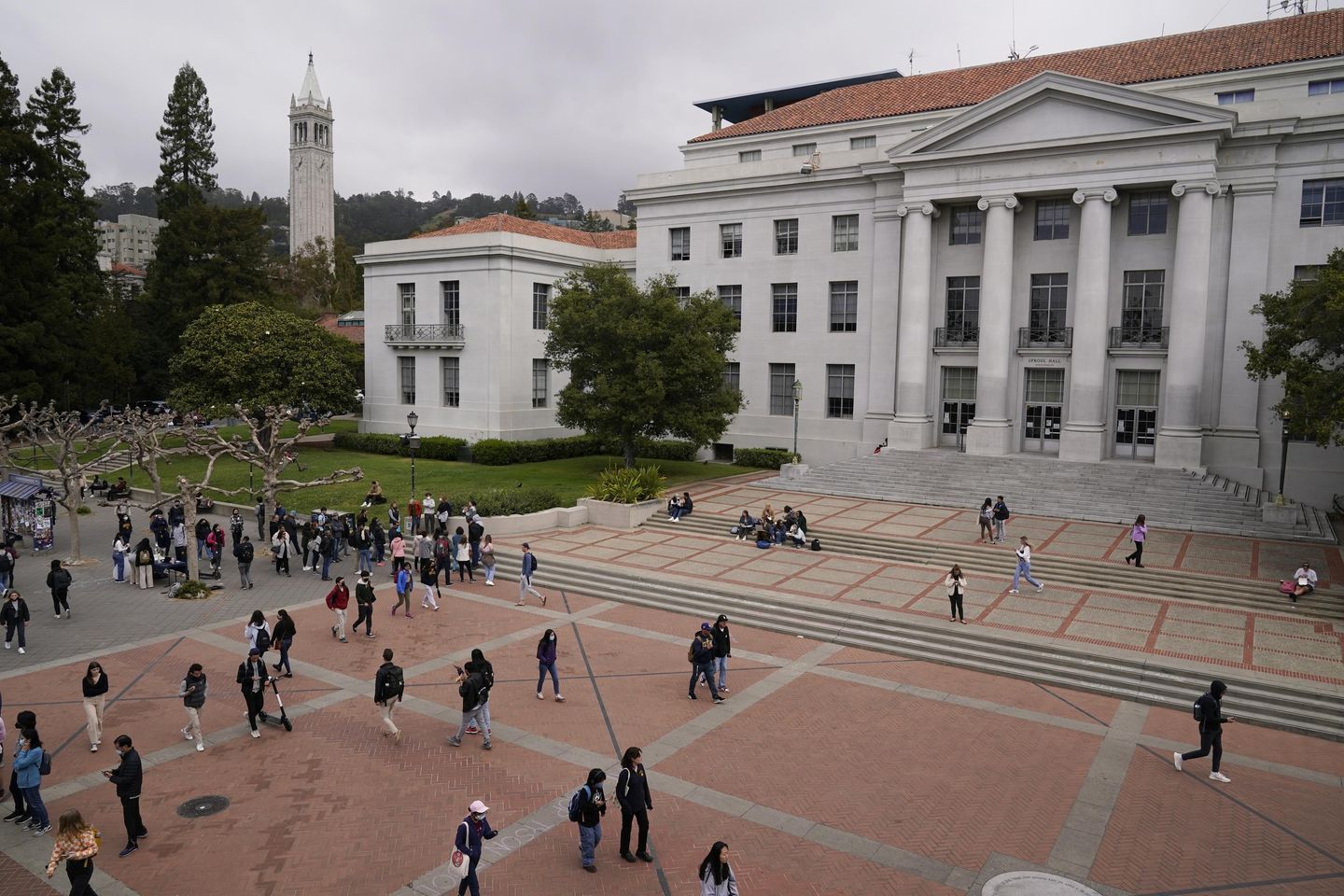
Job candidates rarely find out why they were rejected, but Yael Nativ says she knows exactly why she wasn’t rehired by the University of California, Berkeley: She’s Israeli.
A university investigation determined that Ms. Nativ, a dance researcher and sociologist, was turned down for a second stint as a visiting professor on the basis of her national origin, a violation of Berkeley’s nondiscrimination policy.
A year later, the university has yet to remedy the situation by apologizing or inviting her to reapply for the position, responding to her outreach efforts with “radio silence,” according to a lawsuit filed Wednesday by the Brandeis Center, which represents Ms. Nativ.
“Despite numerous attempts at conciliation by Dr. Nativ, Berkeley has failed to take any action to remedy the violation,” said the complaint against the Regents of the University of California filed in California Superior Court.
The lawsuit seeks an injunction blocking the university from engaging in future discrimination against Ms. Nativ and other Israelis based on their national origin or identity, as well as economic and compensatory damages for lost earnings and emotional distress.
Kenneth Marcus, CEO of the Brandeis Center, linked the university’s treatment of Ms. Nativ to the surge in campus antisemitism following the Oct. 7, 2023, Hamas massacre of Israeli civilians, which prompted Israel to declare war.
“For a university to deny the invitation of a respected professor simply because of her national origin is not only distasteful, it’s illegal,” said Mr. Marcus. “And if the campus administration doesn’t hold themselves up to the same accountability standards that they hold their students, what is stopping their students from acting on their own discriminatory beliefs?”
Ms. Nativ, who has a Ph.D. in sociology of education, was encouraged by other professors to reapply after teaching a 2022 course as a visiting professor in the Department of Theater, Dance and Performance Studies.
She submitted her application in August 2023. A month after the Oct. 7 attack, she was rejected.
She was told by professor SanSan Kwan, now head of the department, that her Israeli citizenship was the problem.
The lawsuit said, “In a direct message on WhatsApp, Dr. Kwan wrote: ‘[M]y dept cannot host you for a class next fall. … Things are very hot here right now and many of our grad students are angry. I would be putting the dept and you in a terrible position if you taught here.’”
An investigation by the university’s Office for the Prevention of Harassment and Discrimination found in September that a “preponderance of the evidence” showed Ms. Nativ was discriminated against based on national origin.
Ms. Nativ responded by expressing her gratitude and asking the university to respond by issuing an apology, inviting her to return as a visiting professor, and taking steps to help faculty and students “reflect and manage extreme conflictual situations on campus and in the classroom, with special attention and emphasis on issues of racism and antisemitism.”
Her follow-up emails were met with silence or responses such as the “matter is still currently under review,” the lawsuit said.
Dan Mogulof, Berkeley assistant vice chancellor for communications, said the university isn’t permitted by state law to discuss personnel matters and typically doesn’t comment on litigation.
“While we will not comment on an individual case, UC Berkeley is committed to confronting harassment and discrimination of all types, and to gaining compliance with all relevant state and federal statutes and University policies,” he said in an email. “When those laws and/or policies are violated, the university believes there should be appropriate consequences.”
The Brandeis Center said Ms. Nativ’s complaint comes as “part of a disturbing pattern emerging across top universities” as Israeli academics and researchers increasingly face “career-undermining attacks.”
In a lawsuit filed last month against Stanford, Israeli chemist Shay Laps said he walked away from a prestigious postdoctoral position after he was harassed and bullied, and his research was sabotaged, by a lab staffer. He also accused the lab director of retaliating against him after he initially refused to leave.
A university spokesperson told The Stanford Daily that “based on all the allegations that Dr. Laps reported directly to the institution, a thorough internal investigation found that they were unsubstantiated.”
Another Israeli academic, mathematics instructor Lior Alon, sued the Massachusetts Institute of Technology in June, saying the university dragged its feet as he was doxed and harassed by a tenured professor. MIT said it will “defend itself in court regarding the allegations raised in the lawsuit.”











